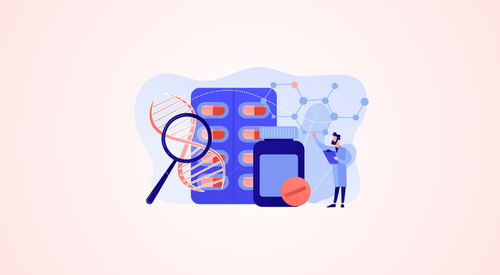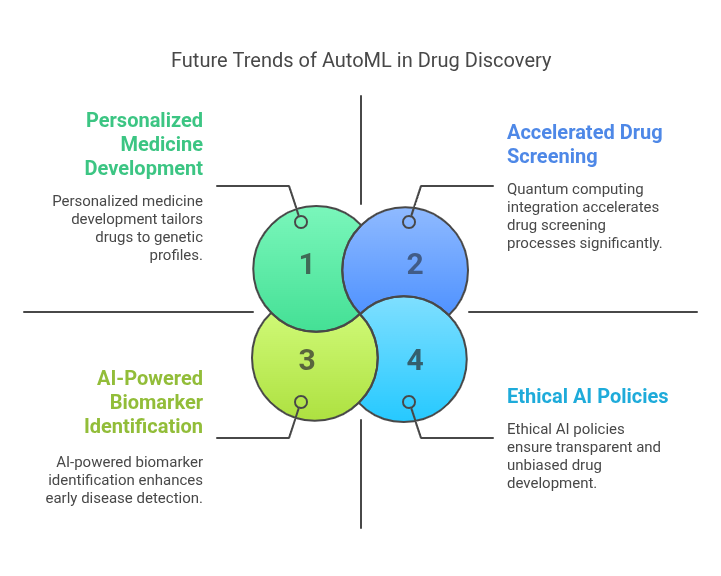

The pharmaceutical industry is transforming as AI and ML enhance drug discovery. A study of 92 AI-driven firms in Asia shows 92 of the 152 drug candidates are in discovery, with cancer as the main focus and growing attention on neurodegenerative disorders like Parkinson’s and ALS. The pharmaceutical industry is experiencing a remarkable change due to artificial intelligence (AI) and machine learning (ML). As the process of developing new treatments becomes increasingly complex and expensive, AI-powered solutions are critical to improving the efficiency and accuracy of pharmaceutical research. In this blog, we explore how Google Cloud AutoML drug discovery in Singapore drives innovation in the sector, understand the challenges involved, and discuss the future of AutoML in drug discovery.
Unlock AI-powered insights for pharma research
Singapore, a key hub for Southeast Asia’s biomedical sciences and AI research, is at the forefront of this shift. With government support, state-of-the-art infrastructure, and a robust biotech environment, Singapore is positioning itself as a significant player in AI-enabled pharmaceutical research. The tech allows businesses to tackle the unique challenges related to the pharmaceutical industry.
Challenges in Traditional Drug Discovery
Despite the growing progress in medical studies, drug discovery remains highly complex and expensive. Several key challenges hinder the efficiency of drug development:
Time-Consuming and Expensive R&D Processes:
- The process of traditional drug discovery takes about 10 to 15 years to develop one drug at the cost of billions of dollars.
- Drug research and development takes a significant amount of time to transition from the objective stage to the pre-clinical stage.
- Additionally, laboratory research, clinical trials, and regulatory approval incur additional time and costs.
High Failure Rates in Drug Development:
- Roughly 90% of drug candidates do not succeed during clinical trials due to issues related to toxicity, efficacy, and unanticipated adverse events.
- It is the failure to forecast essential buyout outcomes at the beginning of the discovery phase that results in wasted time and resources, delaying the launch of meaningful medicines that may save lives.
Need for Faster, More Efficient Solutions:
- As global healthcare issues continue to grow and as new diseases emerge, there is a pressing need to advance drug development.
- AI-enabled approaches can facilitate the processing of data, support decision-making, and improve prediction accuracy, resulting in improved chances of success.
Accelerating Drug Discovery with AutoML
One of the key developments in AI-driven pharmaceutical research in Singapore is the introduction of Google Cloud AutoML. The solution enables users to construct specialized AI models through an interface that does not necessitate advanced machine learning knowledge. The democratization of AI development know-how creates new opportunities for various stakeholders to utilize AI-driven pharmaceutical research.
How Google Cloud AutoML Enables AI-Driven Drug Development:
- Automated Model Training: AutoML enables researchers to train their custom machine-learning models using their datasets without needing to code.
- Accelerated Data Processing: AI-enabled solutions can quickly analyze large biological and chemical datasets, allowing quicker identification of potentially effective drugs.
- Advanced Predictive Capability: AutoML provides the ability to predict molecular interactions, optimize the structure of compounds, and determine potential side interactions earlier in the development process.
- Customizable AI Pipelines: Researchers can fine-tune AutoML models to align with specific medical research objectives, improving the accuracy of predictions.
- Scalable AI Infrastructure: Google Cloud AutoML allows pharmaceutical firms to scale AI-driven drug development processes efficiently, accommodating increasing research demands.
Drug companies applying Google Cloud AutoML have noted considerable decreases in research time, along with improved efficiency in identifying viable drug candidates. AI models are capable of sifting through enormous quantities of genomic and clinical data to quickly find drugs that are promising, far faster than traditional methods would allow.

Image 1: Future Trends of AutoML in Drug Discovery
The Future of AutoML in Drug Discovery
As AI technology continues to grow, the role of Google Cloud AutoML in medical research is expected to expand even further. Some key trends shaping the future include:
#1: AI-Driven Personalization
- AutoML will allow for the introduction of personalized medicine, allowing for drug development to be based on genetic profiles, increasing the effectiveness of treatment.
- Machine Learning models will enable predictions on how different patients will respond to specific medications to decrease the use of trial and error.
#2: Integration with Quantum Computing
- Future developments may result in AutoML being fused with quantum computing and will majorly accelerate molecular modeling and drug screening processes.
- Such an integration could tremendously decrease the time it takes to find potential drug candidates and lower the costs of research.
#3: Expansion of AI in Early Disease Detection
- Technologies powered by AI will increasingly support the early detection of diseases, thus facilitating targeted drug development based on predictive biomarkers.
- AutoML, for instance, would be able to determine novel targets for therapy by processing large genomic datasets more quickly than ever before.
#4: Greater Regulatory Adoption and AI Ethics
- As drug discovery powered by AI becomes more mainstream, governments and regulatory authorities will adopt policies to ensure the ethical use and acceptance of AI in the drug and healthcare spaces.
- AutoML will be important to enable transparent, unbiased, and explainable AI models for drug development and deployment in healthcare.
Conclusion
The integration of Google Cloud AutoML into medicine development is revolutionizing the pharmaceutical industry by making AI-driven research more accessible, efficient, and scalable. By automating model training, accelerating data analysis, and improving predictive insights, AutoML is helping researchers and pharmaceutical companies reduce research timelines and costs while increasing success rates in drug development. With Singapore’s strong biotech ecosystem, government-backed AI initiatives, and cutting-edge research institutions, the country is emerging as a leader in AI-powered pharmaceutical innovation, positioning itself at the forefront of global advancements in medical breakthroughs.
At Niveus Solutions, we help pharmaceutical companies leverage Google Cloud AI healthcare solutions to accelerate research, enhance data processing, and improve predictive accuracy. Our expertise in cloud technologies enables organizations to harness AI’s full potential while ensuring compliance with industry regulations. Get in touch with us to explore how Google Cloud AutoML can transform your drug discovery efforts and drive innovation in healthcare.











